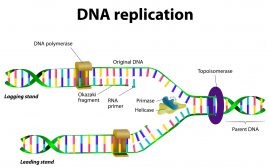Definition
noun, plural: gemmules
(botany) A small gemma; a bud produced by gemmation.
(zoology) A mass of cell capable of remaining dormant then later develops into a new individual.
(evolution) A hypothetical unit formerly assumed to act as bearer of hereditary attributes as postulated by Charles Darwin in his theory of pangenesis.
Supplement
In botany, gemmules refer to the asexual reproductive structures in some plants, such as the buds of mosses and the spores of hydra.
In zoology, gemmules are produced by sponges which can be dormant through the winter, and then later develop into new sponge.
In pangenesis, gemmules are imagined particles of inheritance conceptualized by Charles Darwin to explain heredity. Gemmules are thought to be shed from every part of the body, circulate freely in the bloodstream and move to the gonads where they accumulate in the germ cells. They are supposed to be transmitted from the parent to the offspring in the dormant state until atavism occurs. Gemmules are also called pangenes.
Word origin: French, from Latin gemmula, diminutive of gemma, bud.
See also: pangenesis.
Dictionary > Gemmule
You will also like...

Freshwater Lentic Communities & Animals
This tutorial looks at some of the communities in freshwater lentic habitats. For instance, symbiosis occurs in a commun..

Meiosis and Alternation of Generations
Plants are characterized by having alternation of generations in their life cycles. This tutorial is a review of plant m..

Homeostasis of Organism Water Regulation
Osmoregulation is the regulation of water concentrations in the bloodstream, effectively controlling the amount of water..

Ecological Research: Measuring & Analysis
This lesson is about the methods used for ecological research, such as quadrat and transect sampling, canopy fogging, an..

DNA Structure & DNA Replication
DNA is a double helix structure comprised of nucleotides. A nucleotide, in turn, is made up of phosphate molecule, deoxy..

A Balanced Diet – Minerals and Proteins
Proteins and minerals can be derived from various dietary sources. They are essential for the proper growth and developm..

